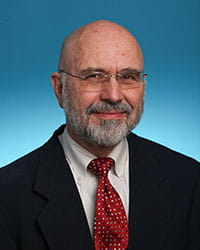$75M Federal Grant Includes Cincinnati Children’s in Drive to Increase Diversity in Genomic Research
$75M Federal Grant Includes Cincinnati Children’s in Drive to Increase Diversity in Genomic Research
New Funding for eMERGE Network Includes $6.9M Across 5 Years to Serve as an ‘Enhanced Diversity Clinical Site’
Wednesday, July 01, 2020
The National Institutes of Health has announced $75 million in funding to be shared by a coordinating center and a network of 10 other top academic medical centers that will launch a five-year effort to improve genomic risk assessments for diverse populations and integrate their use in clinical care.
Cincinnati Children’s will be one of the participating sites, and will receive about $6.9 million over the five years.
The funding builds upon a massive ongoing medical data project called Electronic Medical Records and Genomics (eMERGE). Since 2007, participating medical centers have been working to gather, organize and share an ocean of data that has been supporting the early stages of providing highly-targeted treatments for cancer and other diseases based on a person’s unique genetic code.
The idea has been to perform deep genomic “risk assessments” that could help doctors manage a patient’s care. The information could help determine which people are most likely to develop disease, which medications stand the best chance of success, and which pose risks of serious side effects.
Conditions to receive improved, more-diverse risk assessments include cardiovascular disease, Alzheimer’s disease, and diabetes.
“Recent advances in targeted, precision medicine offer great promise for improved treatments and preventive strategies,” says John Harley, MD, PhD, a genomics expert who will lead Cincinnati Children’s portion of the project. “However, we face a significant gap in the quantity of data available from minority populations and in our ability to use the data to improve outcomes. Currently, most of the available data comes from European-Americans. Our eMERGE site will generate data and will apply analyses in ways that that will help address this disparity.”
While a condition such as heart disease may occur widely across population groups, the sets of genes involved and the factors driving their activity may vary widely among racial and ethnic groups, Harley says. Developing risk assessments that better account for people of African, Latino and Asian heritages will lead to better treatments better tailored for specific communities and better public health for all, Harley says.
Cincinnati Children’s will be recruiting up to 2,500 African-American mothers and infants to collect entire sets of genomic data. This information will then be combined with other known environmental and social factors that can be found within many electronic medical records. This will help experts produce more accurate “genomic risk assessments” or “polygenic risk scores” for people from various population groups.
At the national level, the NIH has awarded $13.4 million to Vanderbilt University to serve as a data coordinating center. About $61 million more will be shared among four clinical and six enhanced diversity clinical sites.
Overall, about 25,000 people will be asked to participate. The exact timing of recruitment has not been set.
The new clinical sites will be led by:
- Iftikhar Kullo, MD, Mayo Clinic, Rochester, Minnesota
- Dan Roden, MD, Vanderbilt University Medical Center, Nashville, Tennessee
- Elizabeth Karlson, MD, Brigham and Women’s Hospital, Boston
- Rex Chisholm, PhD, Northwestern University, Chicago
The new enhanced diversity clinical sites (in addition to Cincinnati Children’s) will be led by:
- Nita Limdi, PhD, University of Alabama, Birmingham
- Eimear Kenny, PhD, Icahn School of Medicine at Mount Sinai, New York City
- Chunhua Weng, PhD, Columbia University, New York City
- Hakon Hakonarson, MD, PhD, Children’s Hospital of Philadelphia
- Gail Pairitz Jarvik, MD, PhD, University of Washington Medical Center, Seattle
Visit the National Human Genome Research Institute to learn more.
Contact Information
Tim Bonfield
timothy.bonfield@cchmc.org
513-636-9492




